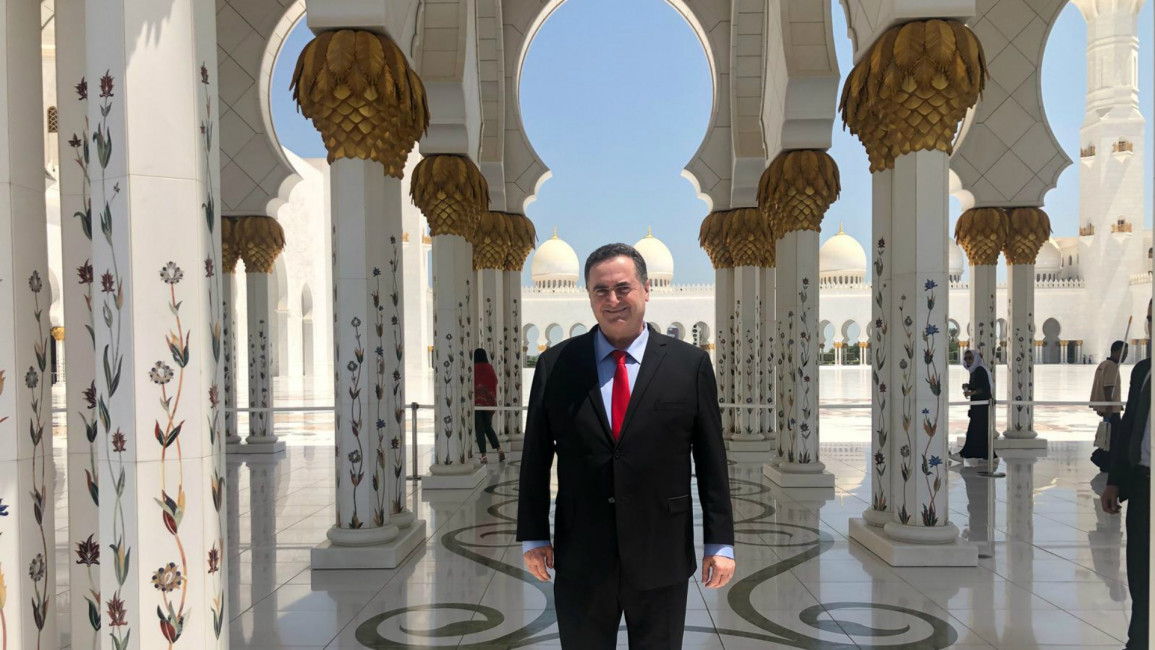Israeli foreign minister visits UAE, hails Gulf relations
Yisrael Katz attended an international climate summit in Abu Dhabi on Monday, the ministry said, and posed for a photo at the city's grand mosque.
"I am excited to stand here in Abu Dhabi and to represent the interests of the State of Israel before the Arab Gulf states," Katz said, according to local media.
"This is a significant step up in the relations between Israel and the states in the region".
The chief diplomat met with a senior UAE official and UN Secretary-General Antonio Guterres on the sidelines of the conference.
Israel and the UAE do not have formal diplomatic relations, but the two have developed increasingly close ties over shared concerns about Iran.
Visits by senior Israeli officials to Gulf states are rare, but growing in frequency.
Israeli Prime Minister Binyamin Netanyahu visited Oman last year. Israel's minister of sport and culture also made the first official visit by an Israeli minister to the UAE.
The visit comes after the US-organised economic conference in Bahrain that was boycotted by the Palestinians.
The White House plan revealed last week calls for $50 billion in investment over 10 years in the occupied Palestinian territories and neighbouring Arab states.
The Palestinian Authority views US President Donald Trump as blatantly biased in favour of Israel and have accused him of dangling the prospect of cash to try to impose political solutions, and of ignoring the fundamental issue of Israeli occupation.
In an unprecedented interview of a senior Gulf official by an Israeli journalist, Bahrain's foreign minister said on the sidelines of the two-day event in Manama that Israel is part of the region's heritage.
In recent years Israel has been courting Arab nations which do not recognise the Jewish state, and in October Israeli Prime Minister Binyamin Netanyahu held surprise talks in Muscat with the ruler of Oman.
Israel has diplomatic relations with only two Arab countries - Egypt and Jordan - but common concerns over Iran have brought it closer to Gulf nations in recent years.
Follow us on Twitter: @The_NewArab



